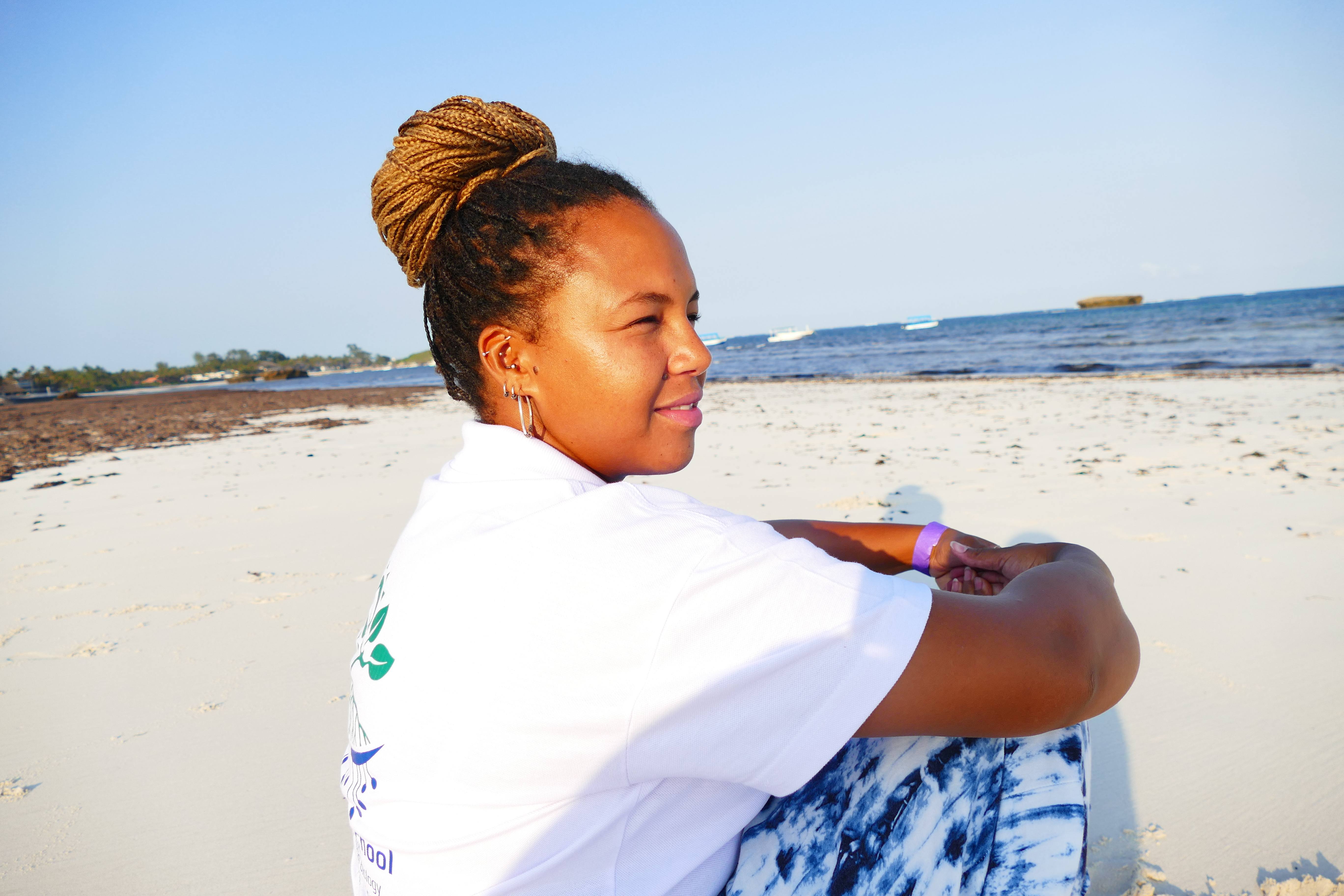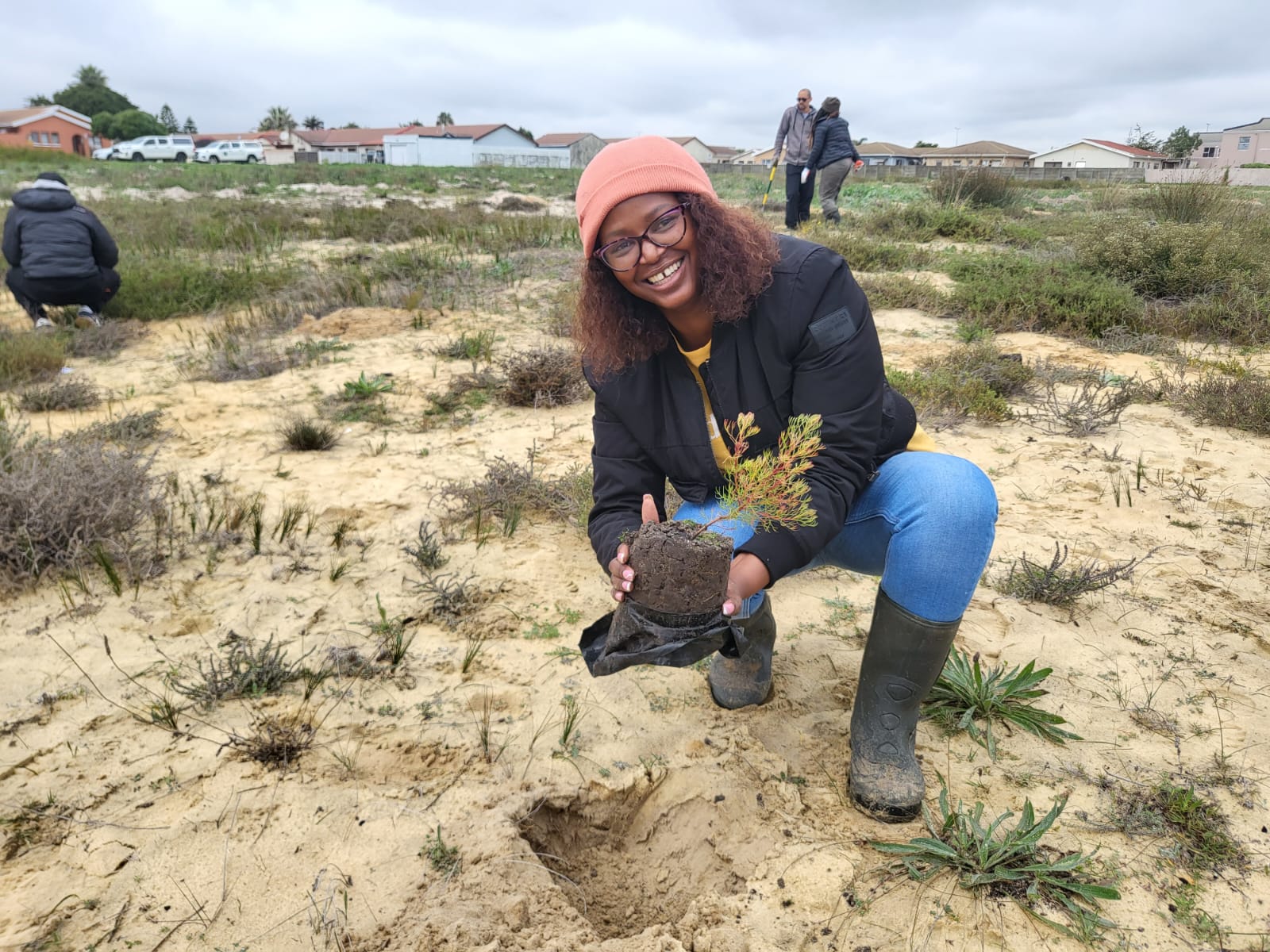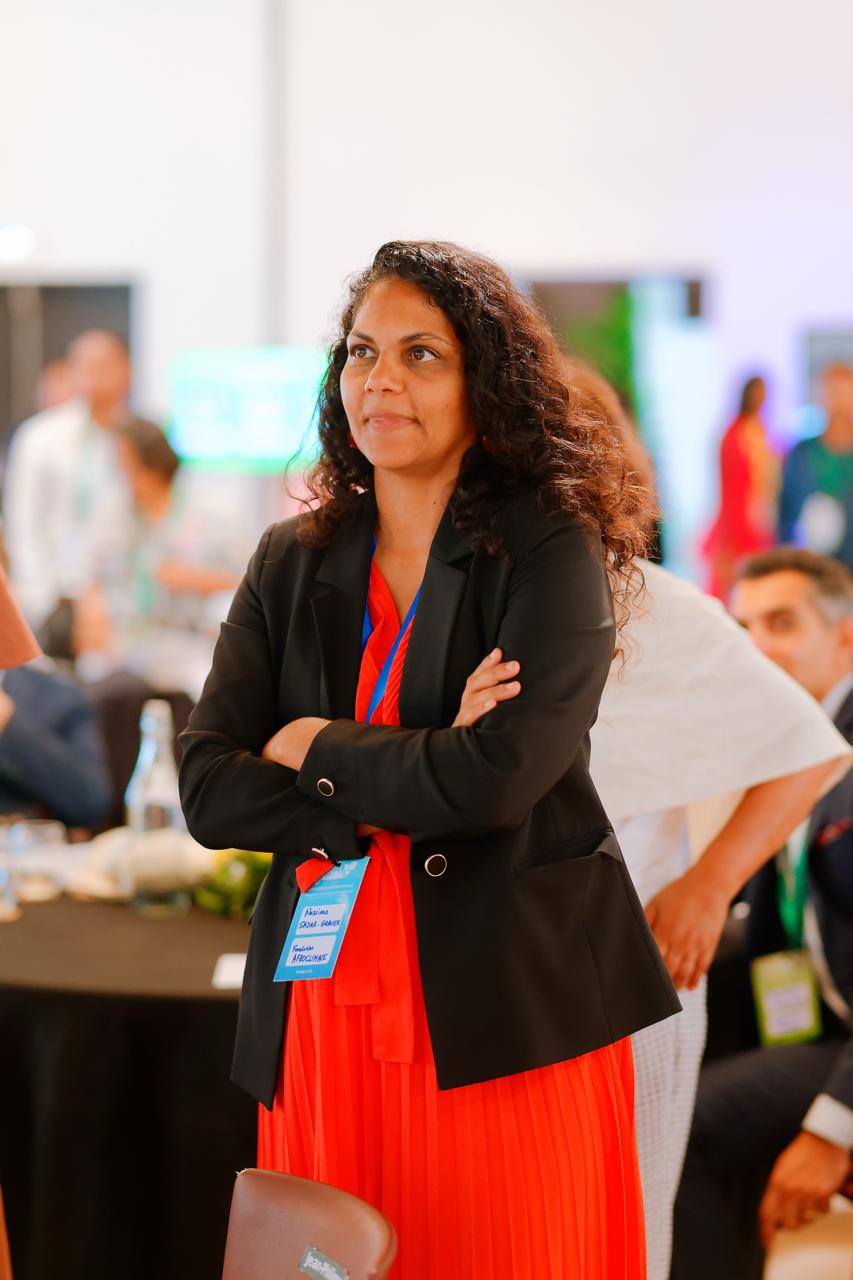We are increasingly getting more African women's representation at these forums. The question is, do we come authentically with our lived experiences, ideas, and perspectives, or are we just fitting into some predetermined mould?
The most beautiful people who ever walked this Earth dared to face their pain and heal their wounds. Dr Fiona Moejes stands counted. Her ability to lead with conviction and compassion is a testament to this.
Fiona has an industry-based PhD in microalgal biotechnology and currently serves as the CEO of Mawazo Institute. The organisation supports early-career African women researchers to contribute evidence-based solutions to pressing development needs.
She has a background in developing and implementing multi and transdisciplinary projects focused on marine biotechnology and sustainable aquaculture, with a strong focus on microalgae and seaweed and community-led marine conservation.
The Women for the Environment 2022 fellow shares insights from her journey with Damaris Agweyu.

Fiona, what is your calling?
To create space for others. It sounds very abstract, but it's something that I have been thinking about in the recent past, and it's beginning to sit well with me.
What does creating space for others look like for you?
Encouraging people. Opening doors. Providing support. I see my role as helping others show up as their authentic selves.
At what point did it occur to you that this was your role?
It emerged for me in 2022.
I’d been invited to join a thought leaders’ forum in Italy, discussing the use of gene drives in conservation. As I walked down from my hotel room to meet the other participants, this moment of imposter syndrome checked in. Why was I here? Among all these greats in the sector? Was this a mistake?
I quickly snapped out of it and gave myself a pep talk. "Listen," I said, "this doubt is not serving anybody. You are here representing something bigger than yourself. Just get out there and do it".
This was the beginning of my journey to figure out my vision.
I realised that being present in specific spaces is not enough. Because we are increasingly getting more African women's representation at these forums. The question is, do we come authentically with our lived experiences, ideas, and perspectives, or are we just fitting into some predetermined mould?
So the more significant calling for me became encouraging people, particularly African women, to show up whole.
At 32, you became the CEO of the Mawazo Institute. What is your leadership style?
I feel lucky to have inherited such a strong organisation with a beautiful work culture. The naivety that comes with my age helps because I'll try things even without knowing how difficult they'll be. And I feel like that's everybody in Mawazo. We come unafraid. We ask questions. We lean on each other. And we give it our best.
Mine is to create an enabling environment for all this to happen. A space where everybody feels not only welcomed but also needed. Whether you're an intern or the finance director, we will sit at the table and discuss big ideas because there's always room for expansion, improvement and optimisation.
We're not perfect. But we're in a space where we encourage curiosity and learning and where it's safe to make mistakes.
Would you say you're authentic?
It’s a journey. I'm starting to lose the people-pleasing perfectionist mentality that had become my crutch. I'm constantly learning and noticing when I'm being pushed out of character or feeling uncentered.
I've been doing a lot of reflecting, and one big realisation is that I occupy the space between different worlds. I am mixed race. I attended good schools but didn't necessarily come from money. I straddled research and industry for my PhD. I have been able to inhabit different countries, schools, and workspaces quite easily. This means I can translate information or perspectives between divergent worlds.
In the last few months, I've been thinking about our fluidity as humans, which is the most beautiful form of acceptance. We're so complex; we cannot and must not be boxed. I started putting she/her + they/them in front of my name. It doesn't mean I don’t consider myself a woman. It just means I don't want to be boxed. A team member reached out to me and said, "Fiona, I'm so grateful that you explored that because it makes me feel comfortable expressing myself and exploring my whole being".
I thought it was a little thing. I didn't set out to inspire anybody. I was just more authentic. And it helped somebody.
In your career path, were you led with compassion?
Not always.
At the start of my career, I worked at a private marine research station in Ireland. My research director was a wonderful woman who was compassionate, and always supportive. However, changes in ownership and management meant the main decision-makers were now men who did not engage well with the team on the ground. This created fractures in a small team and a not-so-nice working environment.
When I had my first child, they completely disengaged from me. Suddenly, they weren't interested in listening to or supporting my ideas. It was as if I'd lost brain cells during pregnancy and labour. Still, I continued to go above and beyond. I was still working on projects during my maternity leave, bringing my baby into the research station. She would be asleep in her bassinet while I had meetings. It was a lot of pressure, and I now realise I was dedicating everything to proving a point as a woman and a woman of colour.
I remember leading a proposal for a multi-million-Euro project with several partners from Europe and Africa. In our first virtual meeting, some people looked surprised, taken aback by the fact that the person leading the development of this proposal was a young woman of colour. This became a common thread in my career. I'd go to conferences, and people would think I was part of the organising committee rather than a participating scientist. I had ambassadors assume my white colleague must be the program manager and I’m the assistant. And so I did everything I could to disprove them. It was a silent revolution of sorts. But it completely wore me down.
A yearning to translate my marine research experience into a way I could support Africa’s growth led me to change careers and swap one green island for another. I left Ireland and had a research career to manage a marine resource management program in the Comoros Islands. It was one of the most impactful experiences in my life.
One of our roles was to help a local fisherwomen’s association understand why we needed to protect certain marine areas. We also provided them with the necessary technical support to do this and fish sustainably. Most of the women could not read or write. But they got it. And the work they were doing was beyond amazing.
This was my first taste of conservation and development work. Whilst the program was hugely successful in terms of impact, I quickly realised how much of the system as a whole is still so broken.
I struggled to understand why developing the skill sets of the Comorian team members and trusting them with decision-making wasn't happening. They knew more about their island than I ever would. I saw my role as providing the framework for them to do what they were so passionate about. I love collaborative leadership. I think out of the box. But this way of leading the team was frequently shut down by senior management. I often left work in tears.
Coming back to Kenya, I began volunteering at a marine conservation organisation. And while it was a successful program, it was Comoros all over again. Local knowledge, skills and worth were undermined. For me, the result does not excuse the process. Compassionate leadership, capacity building, and team empowerment are just as important as the result.
How has WE Africa impacted you?
It's been life-changing.
Joining WE Africa came at the perfect time because I had just restarted my journey on a blank slate.
So many things have happened throughout my life, and my coping strategy was distraction and preoccupation. The chronic suppression and running away from any negative memories or feelings meant I had suppressed my ability to feel any feelings—good or bad. And so I couldn't find joy in anything anymore.
One day in May 2021, I was ready to check out. I had planned everything. I didn't want to leave my family in a mess. I had read up on what kind of support the kids would need. It sounds dark, but it was so peaceful. My drive for finding solutions to problems meant I had found the ultimate way to stop the pain.
But I have a superstar of a partner. He created a space for me to sit with these dark thoughts and simply sat by my side. Unfortunately, suicide was something he had experienced with a family member and knew all too well where this could go. He convinced me to give therapy a try. And I did.
Three months later, in August 2021, one of the WE Africa founders, Dr Colleen Begg, reached out to me asking me to apply to WE Africa. I didn't have the experience to be part of such a program. I wasn't even directly working in the environmental conservation sector. Colleen told me to apply anyway. And I did.
Everything that has happened since has been magical. I met Fiona for the first time. I knew she was there, but I had never really known her.
From childhood, Fiona has always been the jolly one. Putting on a face. Numbing feelings. Running. From one thing to the next.
My journey to myself started just before joining WE Africa. Then WE Africa gave me the tools to become more of myself.
Was there a last straw that made you decide it was time to check out of life?
On reflection, it boils down to having lived inauthentically for so many years. I wasn't consciously choosing to be someone else; I just didn't know who I was.
As a child, I was exposed to things I shouldn't have been. I carried a lot of pain from that. I know my parents love me, and I will always be grateful for them. I have learned to look at them not just as my parents but as people who had their traumas and probably did the best they could with the knowledge they had.
But throughout my life, I’d suppressed this heavy dark energy. I'd been looking for outside validation and putting too much pressure on myself. I thought if I was perfect, then I would be worthy.
An added layer was working twice as hard because I usually found myself in spaces where I was a minority gender and race. The realisation that the outside validation would never be enough led to a tired spirit.
When I faced myself and started doing the work, the load was lightened. I still have to carry it because it's my lived experience, but now it's like a small handbag, and it's manageable.
Reaching the end of my rope meant I only had one option—to live. And that is what I am doing. Fully.
***
This interview is part of a series profiling the stories of the 2022 WE Africa leadership programme fellows, African women in the environmental conservation sector who are showing up with a strong back, soft front, and wild heart.




